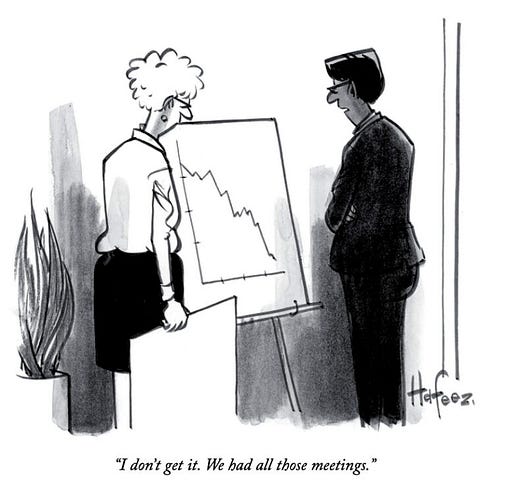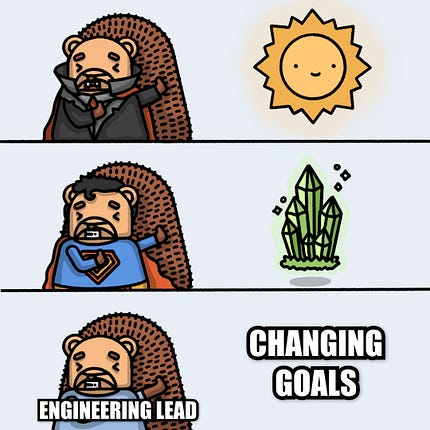Failure modes for engineering team leads
Being a team lead is a strange job. You still code, but now the team's success is your responsibility too. It's two full-time jobs. And here's the tricky part: it's easy to slip into habits that slow your team down, kill motivation, and stall progress. These are some failure modes we sometimes see among team leads at PostHog, and how to avoid them. They're written for senior engineers, tech leads, staff engineers, EMs – basically anyone guiding a team, whether it's in their job title or not. 1. You’re always the bottleneckSymptomYou insert yourself into every decision, review every PR, and plan every ticket. Shipping grinds to a halt as everyone waits for your decisions. Why it happensIn an effort to keep quality high and make the right calls, you start acting more like a PM than an engineer. It's the easiest way to feel in control. Unfortunately, it also turns you into a bottleneck. How to fix itDon't treat engineers like children. They're capable of making great product decisions and owning their impact. Here are a few ways to empower them to do that:
2. You stopped writing codeSymptomSlack is your new IDE and your calendar is a Tetris game of stand-ups, retros, and quick syncs. Your GitHub graph looks like an empty game of minesweeper. Why it happensMeetings are the easiest way for you to keep an eye on things, so now you only manage the work instead of actually doing it. Another factor is ego: all those invites make you feel important. They create an illusion of productivity, and nobody pings you afterward asking what you actually got done. Before you know it, you're stuck in a doom loop: more meetings → fewer commits → coding skills fade → you hide in meetings → repeat. How to fix itAim for 80‑90 % of your week in the codebase. Kill the meetings and work asynchronously. Here's how:
3. You're scared of changing goalsSymptomMid-quarter you discover growth is flat and churn is increasing, but you move ahead with what's on the roadmap. By the time the quarter ends, the team has delivered everything except real impact. Why it happensYou're scared of rocking the boat, or looking like a failure if you change goals. It's easier to keep moving than to admit you're going in the wrong direction. How to fix itAdd a regular feedback loop to evaluate your team's progress. At PostHog, we do monthly growth reviews. We gather all available data – revenue metrics, product analytics, user feedback, etc, then, the team meets once a month to discuss hard questions like:
This paints a full picture of how the product and team are doing. Then it's up to you to decide if the team should continue on their course or if something needs to change.
4. You don't keep the talent bar highSymptomThe same bugs and sloppy PRs keep reappearing from the same people, yet no one seems surprised. Why it happensYou're scared of giving hard feedback, so mediocrity coasts by unchecked. Gradually, your expectations lower and buggy code becomes the standard. Before you know it, you're fighting the same bugs every week instead of making real progress. How to fix itRun the Keeper Test quarterly: "If this person resigned today, would I fight to keep them?". Dig into where the answer is "no" and ask yourself what would it take for it to be a "yes". Be honest about what’s missing: is it skill, mindset, ownership, or impact? Then, address it immediately through coaching, clearer expectations, or, when necessary, parting ways.
5. You're always the heroSymptomYou personally fill in every gap, put out every fire, and jump in whenever the team hesitates, all while juggling your regular work. Your day starts way before breakfast and ends late into the night. You're exhausted and slowly burning out. Why it happensWhen your team isn't yet confident or experienced enough, handling things yourself feels like the fastest way to get things done. But over time, it teaches your team to escalate rather than solve. What saved time in the short term starts costing you in the long run. How to fix it
Words by Lior Neu-ner, who hates leaf blowers and lawn mowers equally. 🧠 Some more food for your brain
|
Similar newsletters
There are other similar shared emails that you might be interested in:



